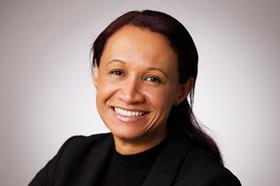All efforts to raise awareness and strengthen the rights and entitlements of children and young people with Down’s syndrome, who often experience marginalisation, and whose parents have to fight the system to get their children’s needs met, should be wholeheartedly welcomed. The proposals contained in The Down’s Syndrome Bill, promoted by former cabinet member Liam Fox MP as a private member’s bill, are then potentially a positive step forwards.

Children with Down’s syndrome are not, however, currently automatically sent to specialist schools, although there may be an informal and potentially unlawful presumption by local authorities in favour of this and reluctance on the part of mainstream schools to admit them. Many children and young people with Down’s syndrome are eligible for an education health and care plan (EHC plan). All children with EHC plans already have a conditional right to attend a mainstream school and a conditional right to attend parents’ preferred school (Children and Families Act 2014). Whatever the type of school sought, parental preference can only be dislodged in particular circumstances under the Children and Families Act 2014 or Education Act 1996.
For children without an EHC plan, the Admissions Code provides that a school should not refuse admission to a child with special educational needs because it does not feel able to cater for them. All disabled children are additionally entitled to the protection of Equality Act 2010, including from unfavourable treatment arising in consequence of their disability. As such, the school must not discriminate by not admitting them as a pupil and must also make reasonable adjustments.
The existing Autism Act provides for the needs of adults with autism so does not apply to children and young people at school. Young adults who may continue to have an EHC plan up to the age of 25 for example while attending college, are not afforded additional rights to preferred education settings relative to their peers with other special educational needs and disability. It is therefore misguided to suggest that a similar act would strengthen the rights of children and young people with Down’s syndrome in relation to education.
One may wonder therefore whether the educational provisions in the new proposals are necessary and would in reality strengthen the right of children and young people with Down syndrome to greater inclusion and choice. There is a risk that the real issue at play – failure to comply with the existing legislation, and the reasons for that – is skated over. The education system does not need patchy legislation that addresses the needs of disability specific groups in piecemeal fashion. What would that mean for children with different but equally challenging conditions such as cerebral palsy or rare genetic conditions, who are no less deserving? What is required is for the current legislation to be properly implemented and that requires adequate funding, training and a cultural shift to enable schools and local authorities to address the gap between what children and young people have a right to expect and what they are actually receiving.
Children with Down’s syndrome are entitled to experience a sense of belonging and have their needs met. The fundamental reason why more children with special educational needs are not attending and having their needs met in mainstream schools is a lack of funding and of trained, experienced staff to meet the needs of a more diverse pupil population. Whilst that continues to be the case, truly inclusive mainstream education is likely to remain elusive.
Eva Akins is partner and head of education law at Russell-Cooke LLP































1 Reader's comment